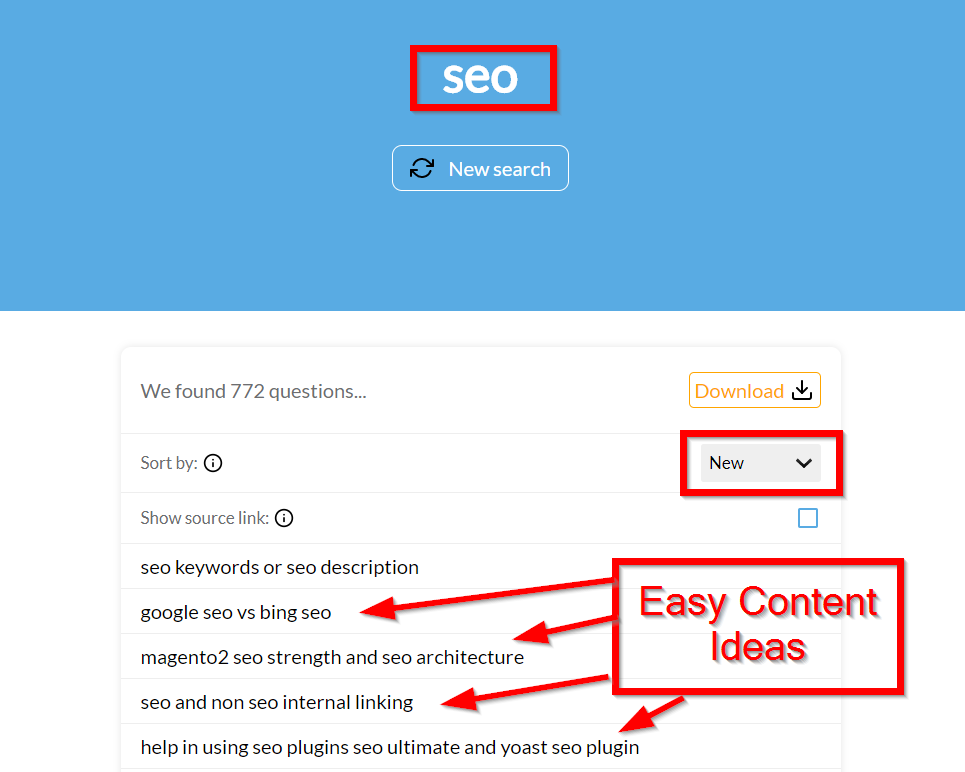Jump to Section
ToggleIn the world of Search Engine Optimization (SEO), keyword research plays a crucial role in driving organic traffic to your website. However, targeting high-competition keywords can be challenging and time-consuming. That’s where the concept of finding low-competition keywords comes into play. In this blog post, we will explore effective strategies to identify low-competition keywords using free tools, allowing you to optimize your SEO efforts and improve your website’s visibility in search engine results. The tools and approaches in this article will reflect those I would typically use. Still, as always, there are many ways to effectively approach this type of task by working with related tools and technologies.
Understanding Low-Competition Keywords
Before diving into the process, let’s define what low-competition keywords are. These keywords or key phrases have relatively low search volume and are not heavily targeted by other websites. Differentiating between low-competition and high-competition keywords is essential for developing a successful SEO strategy. By targeting low-competition keywords, you can stand out from the crowd and increase your chances of ranking higher in search results.
The Best Free Tools for Low Competition Keywords Research
- Keyword Generator is used for finding popular keyword ideas.
- Answer The Public for finding keywords phrased as questions.
- Keyword Sheeter for finding keyword ideas using semi-automatic Google search as a source.
- QuestionDB serves as a topic generator for blogs. It gathers queries people are currently asking about your keywords from various Q&A websites, such as Reddit and Quora.
- ChatGPT for finding seed keyword ideas.
- Ahrefs Webmaster Tools for finding low-hanging keyword opportunities.
- Keyworddit extracts long-tail and seed keywords directly from subreddits, helping you find topics people are searching for.
- Google Keyword Planner for finding related keywords.
- Google Search Console for finding declining keywords.
- Google Trends for finding breakout keywords.
- SERP Checker for analyzing a keyword’s traffic potential.
Keyword Generators for Blog Topic Ideas
In the ever-evolving landscape of blogging, where content is king, bloggers, and content creators constantly seek innovative ways to generate captivating ideas that resonate with their audience. One valuable resource in their arsenal is keyword generators, which provide a wealth of inspiration for creating engaging blog posts. Let us explore a unique perspective on a list of prominent keyword generator tools, shedding light on their features, functionalities, and how they can revolutionize your blogging experience.
1. Keyword Generator
Let’s start with the foundation of keyword research—the keyword generator itself. This versatile tool offers a plethora of options to discover potential blog topic ideas. By entering a single keyword or a set of seed keywords, the generator swiftly generates a list of related terms, allowing you to explore various angles and themes to craft engaging content. To find low-competition keywords using Google Keyword Generator, follow these steps:
- Enter your main topic or seed keyword into the Keyword Generator tool.
- Explore the generated list of keyword suggestions.
- Identify relevant and high-potential keywords that align with your content goals and target audience.

2. Answer The Public
Answer The Public takes a unique approach to keyword generation by transforming keywords into questions. It provides insights into people’s questions about a particular keyword, offering an opportunity to create blog posts that directly address these queries. By catering to users’ curiosity and delivering valuable answers, you can position yourself as an authoritative source within your niche. Here’s how you can use Answer The Public to find low-competition keywords:

- Input your main topic or seed keyword into the Answer The Public website search bar.
- Analyze the visual representation of question-based keyword suggestions that the tool generates.
- Identify specific questions that resonate with your audience and can be used as blog topic ideas.
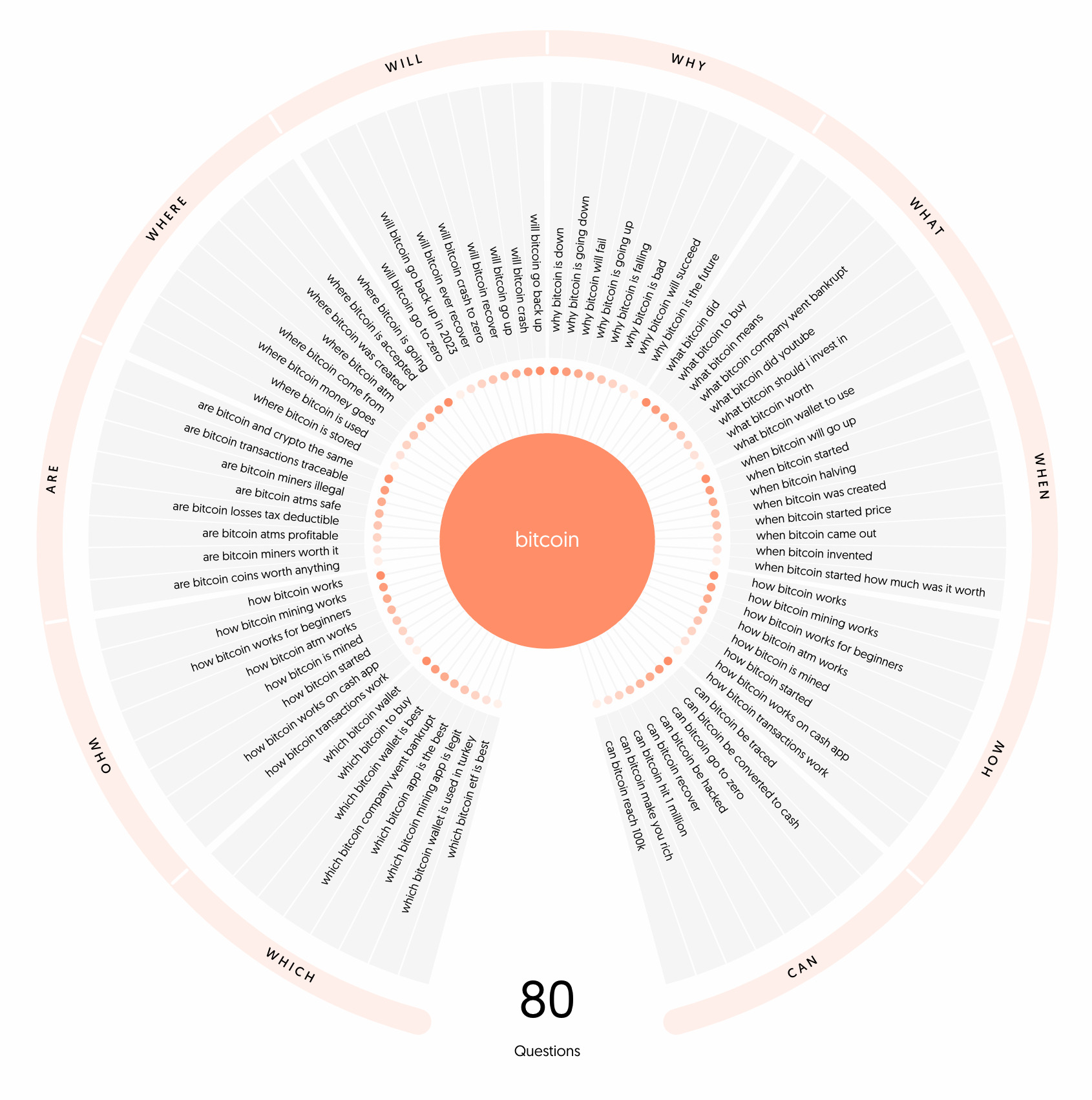
3. Keyword Sheeter
When it comes to sheer volume, Keyword Sheeter offers a flood of blog topic ideas. This tool quickly generates an extensive list of potential keywords by leveraging data from various sources. It allows you to download the entire list, enabling you to sift through the options and identify the most promising topics that align with your blogging objectives. Here is the step by steps to go about it
- Enter your main topic or seed keyword in the search box provided by Keyword Sheeter.
- Review the extensive list of keyword suggestions generated by the tool.
- Look for long-tail keywords and niche-specific terms that can inspire unique and targeted blog topics.
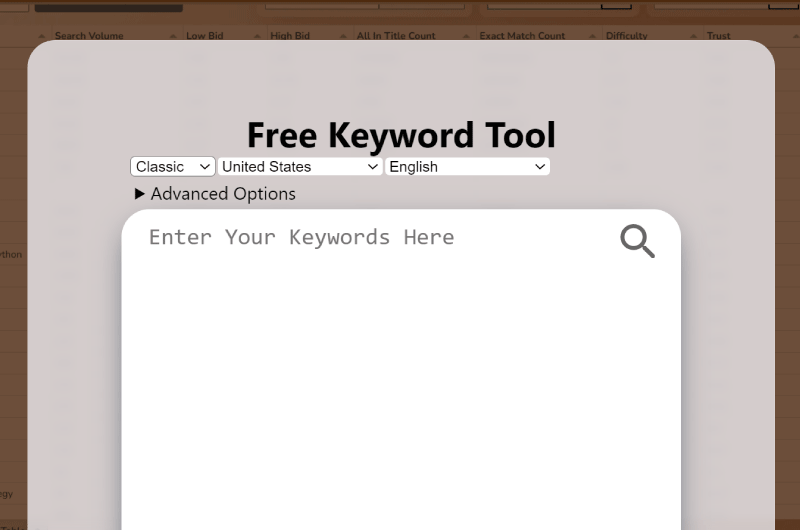
4. QuestionDB
QuestionDB is a treasure trove of user-generated questions from popular forums and websites. By entering a keyword, you gain access to a wealth of questions that people are actively asking online. This tool offers a unique perspective on your target audience’s pain points, providing inspiration for blog topics that directly address their needs and concerns. QuestionDB. It’s an excellent resource for mining unique and thought-provoking blog topic ideas that directly cater to your audience’s interests and concerns. To use this tool,
- Visit the QuestionDB website and enter your main topic or seed keyword.
- Browse through the list of questions sourced from various platforms.
- Identify insightful questions that can serve as blog topic ideas or provide valuable content for your audience.
5.ChatGPT
Taking a step into the realm of AI, “ChatGPT” offers a distinctive approach to generating blog topic ideas. Powered by OpenAI’s language model, it uses advanced algorithms to generate creative suggestions based on your input. Engaging in a conversation with ChatGPT can provide a fresh perspective and spark innovative ideas for your blog. You can explore various topics, ask questions, and receive detailed responses, all while uncovering potential blog ideas. ChatGPT is a valuable resource for sparking creativity and discovering unique angles for your content. These are the step-by-step ways to go about it.
- Engage in a conversation with ChatGPT by providing it with information about your blog niche or topic.
- Receive AI-generated suggestions and insights based on your input.
- Use the generated ideas as inspiration for crafting engaging blog topics.
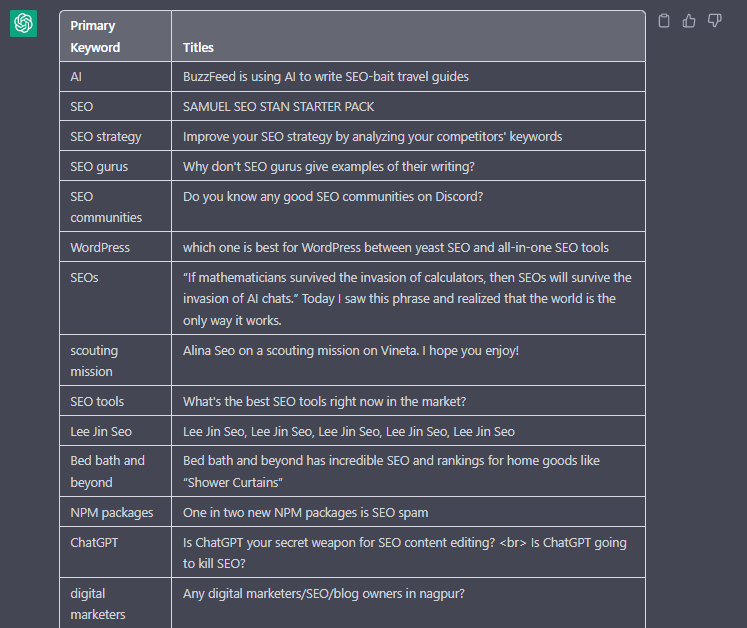
6. Ahrefs Webmaster Tools
Ahrefs Webmaster Tools is a comprehensive suite that goes beyond keyword generation. While it offers keyword research functionalities, it provides detailed insights into your website’s performance, backlink analysis, and competitor research. Utilizing this tool gives you a holistic understanding of your blogging ecosystem and unearths valuable topic ideas to help you stand out. Follow the below step to go about it.
- Access the Ahrefs Webmaster Tools platform.
- Utilize the keyword research feature to explore relevant keywords and their metrics.
- Analyze keyword difficulty, search volume, and click-through rates to refine your blog topic ideas based on SEO insights.
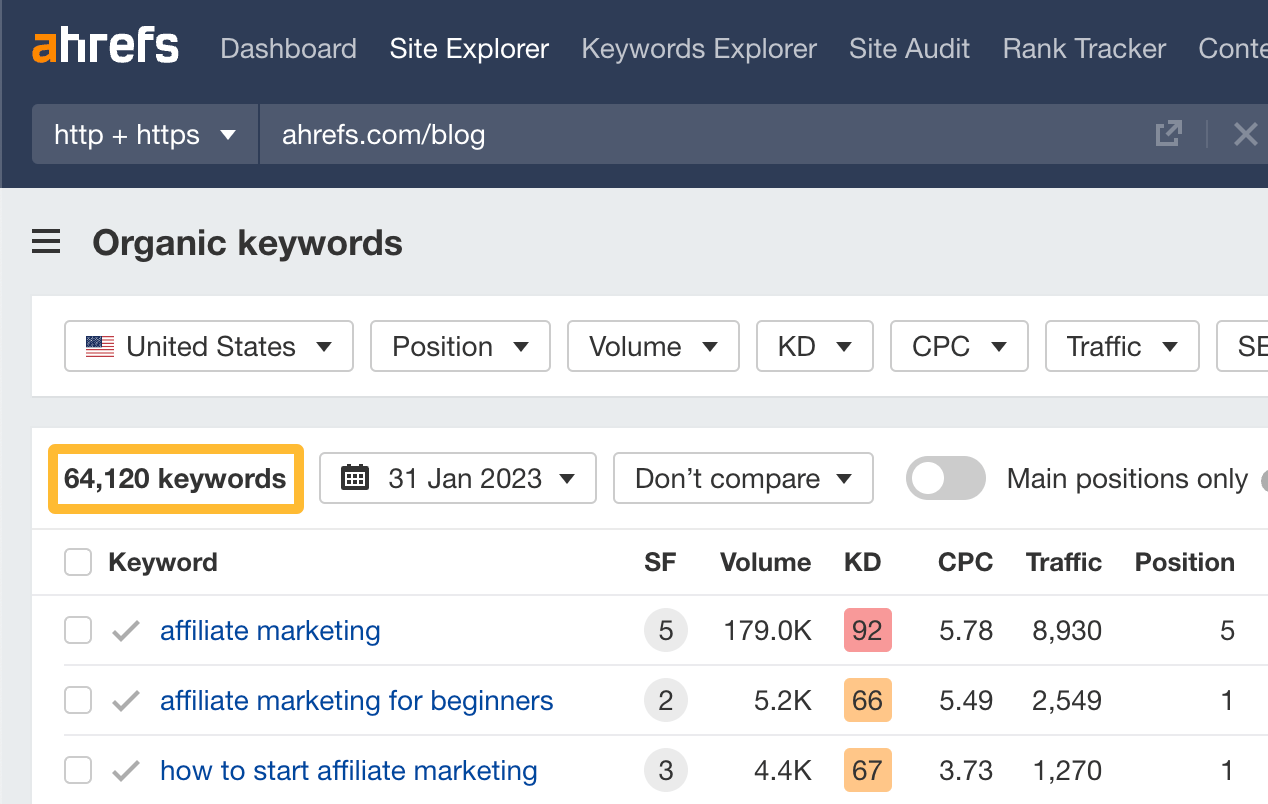
7. Keyworddit
If you’re seeking blog topic ideas from the Reddit community, Keyworddit is the tool for you. It scours Reddit threads and extracts keywords that are popular among users. By tapping into Reddit’s vibrant communities’ collective knowledge and interests, you can identify trending topics, niche interests, and user-generated content ideas that can drive engagement and bring value to your blog. Use the instruction below to use the tool for that purpose.
- Visit the Keyworddit website and enter your main topic or seed keyword.
- Explore the keyword suggestions extracted from Reddit threads.
- Identify trending topics or niche-specific keywords that can inspire blog content tailored to your audience’s interests.

8. Google Search Console
As a blogger, monitoring your website’s performance and understanding how users discover your content is crucial. Google Search Console provides a wealth of information about the keywords that are driving traffic to your site. By analyzing these keywords, you can uncover hidden gems—blog topic ideas that are already resonating with your audience and can be further explored or expanded upon. The step-by-step process
- Access your Google Search Console account and navigate to the Performance section.
- Review the keywords and queries that are driving traffic to your website.
- Identify relevant keywords and search queries that inspire blog topics aligned with your audience’s search intent.
9. Google Trends
Stay ahead of the curve by exploring the latest search trends with Google Trends. This powerful tool highlights the popularity of specific keywords over time, allowing you to identify emerging topics that are gaining traction. By leveraging these insights, you can craft timely, engaging content that caters to your audience’s interests.
- Visit the Google Trends website.
- Explore the trending topics and search queries in your desired region or worldwide.
- Incorporate emerging trends and popular topics into your blog topics to stay relevant and engage your audience.
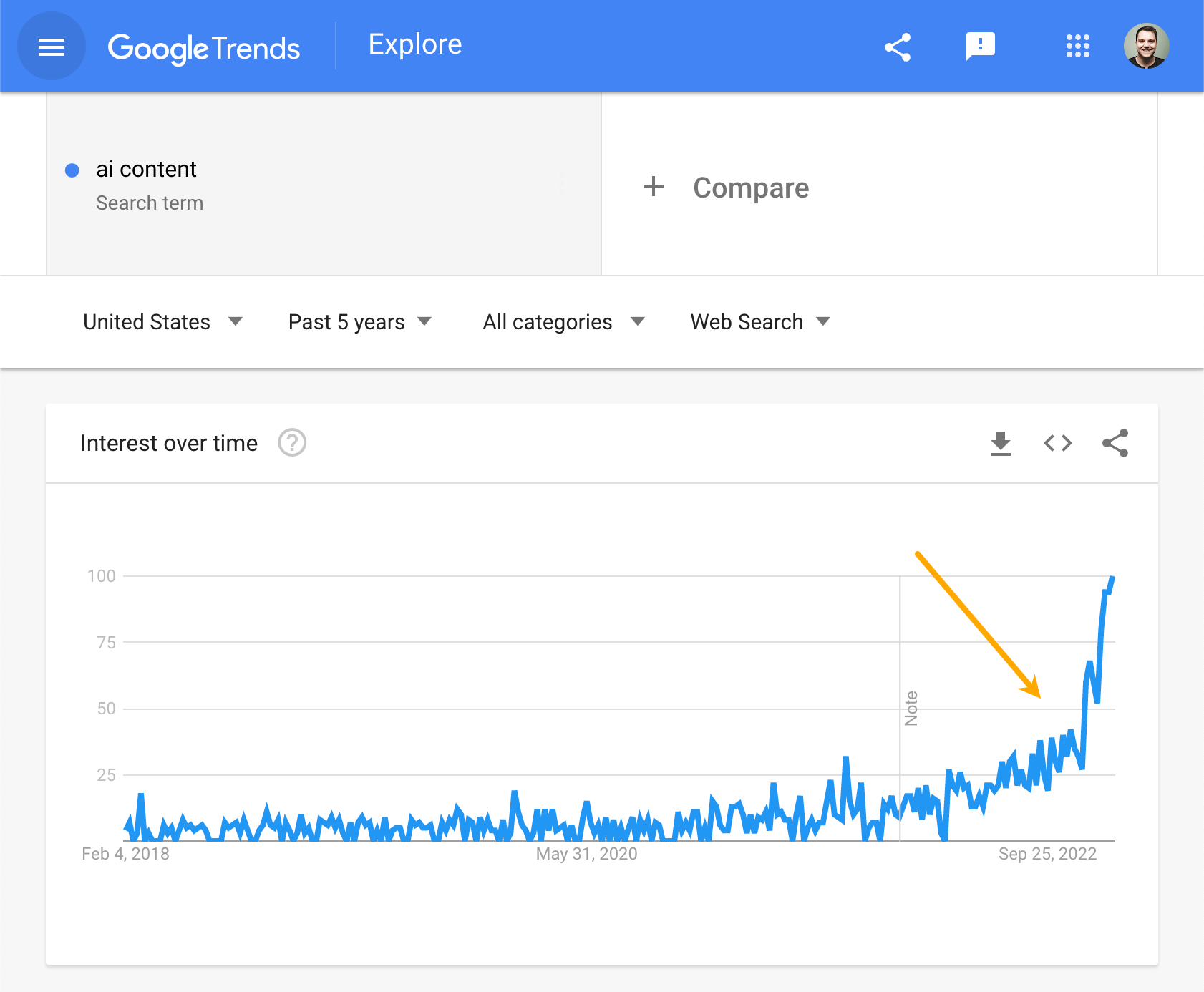
10. SERP Checker
While primarily used for analyzing search engine results pages (SERPs), SERP Checker can also be a valuable tool for generating blog topic ideas. By examining the top-ranking pages for a particular keyword, you can gain inspiration on how to create SEO-optimized content. Analyzing their structure, format, and the information they provide can help you shape your own unique take on the topic. See the process below
- Access a SERP Checker tool or use the search engine results page directly.
- Enter your target keyword and analyze the top-ranking content.
- Take note of featured snippets, related searches, and content gaps to inspire unique and valuable blog topics.

Best Method to Analyze Competition for Keywords
To ensure the effectiveness of your keyword strategy, it’s crucial to assess keyword difficulty and competition. Tools like Moz and SEMrush can provide valuable insights into the competitive landscape. When evaluating keyword competition, factors include search volume, domain authority of competing websites, and the quality of content ranking for those keywords.
How to Find Hidden Low-Competition Keywords: The Step-by-Step
While using free tools is a great starting point, there are other strategies to uncover hidden low-competition keywords.
Step 1: Embrace Long-Tail Keywords
Long-tail keywords are longer and more specific phrases that have lower competition. These keywords cater to a more targeted audience and often have higher conversion potential.
Step 2: Mine Keyword Suggestions from SERPs
Analyze search engine results pages (SERPs) for your target keywords. Look for related search terms and keyword suggestions at the page’s bottom. These can provide valuable insights into low-competition keyword opportunities.
Step 3: Explore Niche-Specific Forums and Communities
Engage with niche-specific forums, communities, and social media groups related to your industry. Pay attention to the language used by your target audience and identify relevant keywords that competitors may not heavily target.
Step 4: Refining and Selecting Low-Competition Keywords
Once you have a list of potential low-competition keywords, it’s essential to refine and select the most suitable ones for your SEO strategy. Consider the following factors:
i. Analyze Search Volume and Relevance:
Ensure the selected keywords have a reasonable search volume to attract enough organic traffic. Additionally, ensure they are relevant to your website’s content and target audience.
ii. Identify Commercial Intent Keywords:
Focus on keywords that indicate commercial intent, such as “buy,” “discount,” or “review.” These keywords have a higher likelihood of converting visitors into customers.
iii. Ensure Alignment with Target Audience and Website Goals:
Choose keywords that align with your target audience’s search intent and your website’s overall goals. The selected keywords should help drive meaningful traffic and support your website’s objectives.
Step 5: Tracking and Measuring Keyword Performance
Tracking and measuring the performance of your keywords is crucial to optimize your SEO efforts. Several free tools can assist you in monitoring keyword rankings and performance metrics. Regularly review the data and adjust your keyword strategy accordingly.
Best Keyword Research Tools: FAQ
Q: What are low-competition keywords?
A: Low-competition keywords are search terms or phrases that have relatively less competition in search engine results. This means fewer websites are targeting these keywords, making it easier for you to rank your website higher and attract organic traffic.
Q: Why is it important to find low-competition keywords?
A: Finding low-competition keywords is important because it allows you to focus your SEO efforts on areas where you have a higher chance of success. By targeting keywords with less competition, you can improve your website’s visibility, increase organic traffic, and potentially outrank your competitors.
Q: How can I identify low-competition keywords?
A: Using various free tools and strategies, you can identify low-competition keywords. Tools like Google Keyword Planner, Answer the Public, Ubersuggest, Google Trends, and Keyword Surfer can provide valuable insights into keyword search volume, competition, and related keyword ideas. Additionally, analyzing your website’s data through Google Search Console can help you uncover untapped keyword opportunities.
Q: Should I only focus on low-competition keywords?
A: While targeting low-competition keywords can be beneficial, striking a balance is essential. Targeting keywords with sufficient search volume and relevance to your content is also important. Aim for a mix of low-competition and moderately competitive keywords to maximize your SEO efforts.
Q: How do I optimize my content for low-competition keywords?
A: Once you have identified low-competition keywords, optimize your content by incorporating them naturally into your website’s pages, meta tags, headings, and content. Create high-quality, informative, and engaging content that aligns with the intent behind the keywords. Additionally, focus on building quality backlinks to improve your website’s authority and visibility.
Q: Can I outrank competitors using low-competition keywords?
A: Targeting low-competition keywords gives you a better chance of outranking your competitors, especially if they focus on highly competitive keywords. However, it’s important to remember that SEO is complex and dynamic. Content quality, website authority, user experience, and backlinks also significantly influence search engine rankings.
Q: What are keyword research tools, and why are they important?
A: Keyword research tools are software or online platforms that help identify relevant keywords and phrases for search engine optimization (SEO) purposes. They are essential for understanding user search behavior, identifying high-traffic keywords, and optimizing website content. Using keyword research tools can greatly improve your website’s visibility and organic traffic.
Q: What are some of the best keyword research tools available?
A: Some popular and highly regarded keyword research tools include Google Keyword Planner, SEMrush, Ahrefs, Moz Keyword Explorer, and Long Tail Pro. These tools provide valuable insights into search volumes, keyword competition, and related keyword suggestions.
Q: How do keyword research tools work?
A: Keyword research tools collect and analyze data from search engines and other sources to generate keyword suggestions. They provide information such as search volume, keyword difficulty, competition analysis, and trends, enabling users to make informed decisions regarding their SEO strategy and content creation.
Q: Which keyword research tool is best for beginners?
A: For beginners, Google Keyword Planner is an excellent choice. It is a free tool that directly provides keyword ideas, search volume data, and competition levels from Google’s search engine. Its user-friendly interface and accessibility make it a great starting point for keyword research.
Q: Are paid keyword research tools worth the investment?
A: Yes, paid keyword research tools can be a worthwhile investment for serious SEO practitioners. They offer more comprehensive data, advanced features, and competitive analysis, allowing users to gain a competitive edge in their SEO efforts. These tools often provide deeper insights and more accurate data than free alternatives.
Q: How do I choose the right keyword research tool for my needs?
A: When choosing a keyword research tool, consider factors such as your budget, level of expertise, specific features required, and the scale of your SEO campaigns. It’s recommended to try out different tools, take advantage of free trials, and read reviews or comparisons to determine which tool aligns best with your requirements.
Q: Can keyword research tools help with long-tail keywords?
A: Yes, keyword research tools are particularly useful for identifying and targeting long-tail keywords. Long-tail keywords are more specific and often have lower competition, making it easier to rank for them. Keyword research tools provide insights into the popularity and competitiveness of long-tail keywords, helping you optimize your content accordingly.
Q: Are there any free keyword research tools available?
A: Yes, apart from Google Keyword Planner, there are free keyword research tools like Ubersuggest, Keyword Surfer, and AnswerThePublic that offer valuable keyword suggestions and insights. While they may have limitations compared to paid tools, they can still be valuable assets for conducting initial keyword research.
Q: How often should I perform keyword research?
A: Keyword research is an ongoing process, and it’s recommended to perform it regularly, especially when creating new content or optimizing existing pages. As search trends and user behavior change over time, conducting periodic keyword research ensures that your website stays relevant and competitive in search engine rankings.
Q: Can keyword research tools help with competitor analysis?
A: Yes, many keyword research tools provide competitor analysis features. They allow you to analyze your competitors’ top-ranking keywords, organic traffic sources, and backlink profiles. This information can help you identify opportunities, understand your competitive landscape, and refine your own SEO strategy.
Q: What factors should I consider when choosing a keyword research tool?
A: When choosing a keyword research tool, consider the following factors:
– Accuracy and reliability of keyword data
– Search volume accuracy
– Competitor analysis features
– User-friendly interface and ease of use
– Additional features like rank tracking, backlink analysis, etc.
– Pricing and value for money
Q: Can I use multiple keyword research tools simultaneously?
A: Yes, it is common for SEO professionals and digital marketers to use multiple keyword research tools simultaneously. Each tool may offer unique features, data sources, or different ways of analyzing keywords. Combining insights from multiple tools can provide a comprehensive keyword research strategy.
Q: Are there any other free alternatives to paid keyword research tools?
A: Yes, there are free alternatives available for keyword research. Some popular free tools include:
– Google Keyword Planner
– Ubersuggest
– AnswerThePublic
– Keyword Surfer (Chrome extension)
– Google Trends
Q: How accurate do keyword research tools provide the search volume metrics?
A: The accuracy of search volume metrics may vary across different keyword research tools. While these tools strive to provide accurate estimates, they are based on historical data and may not always reflect real-time search volume. It’s important to understand that search volume metrics are approximations and should be used as a guide rather than absolute values.
Q: Can keyword research tools help with content creation?
A: Yes, keyword research tools can be invaluable for content creation. By identifying high-volume and relevant keywords, content creators can optimize their articles, blog posts, and website copy to align with popular search terms. This helps improve the chances of ranking higher in search engine results and attracting organic traffic.
Q: Are keyword research tools only useful for SEO professionals?
A: Keyword research tools benefit a wide range of users, including SEO professionals, digital marketers, content creators, bloggers, website owners, and businesses. They provide valuable insights into user search behavior, which can be used to optimize content, improve online visibility, and enhance overall marketing strategies.
Q: Are keyword research tools limited to a specific region or language?
A: Some keyword research tools are region or language-specific, while others provide global data. It’s important to check the tool’s capabilities to ensure it aligns with your target audience and the languages or regions you want to focus on.
Q: Can keyword research tools suggest long-tail keywords?
A: Yes, keyword research tools often suggest long-tail keywords. Long-tail keywords are more specific and usually consist of multiple words. They often have lower search volume but can be highly targeted and have less competition, making them valuable for attracting niche audiences.

